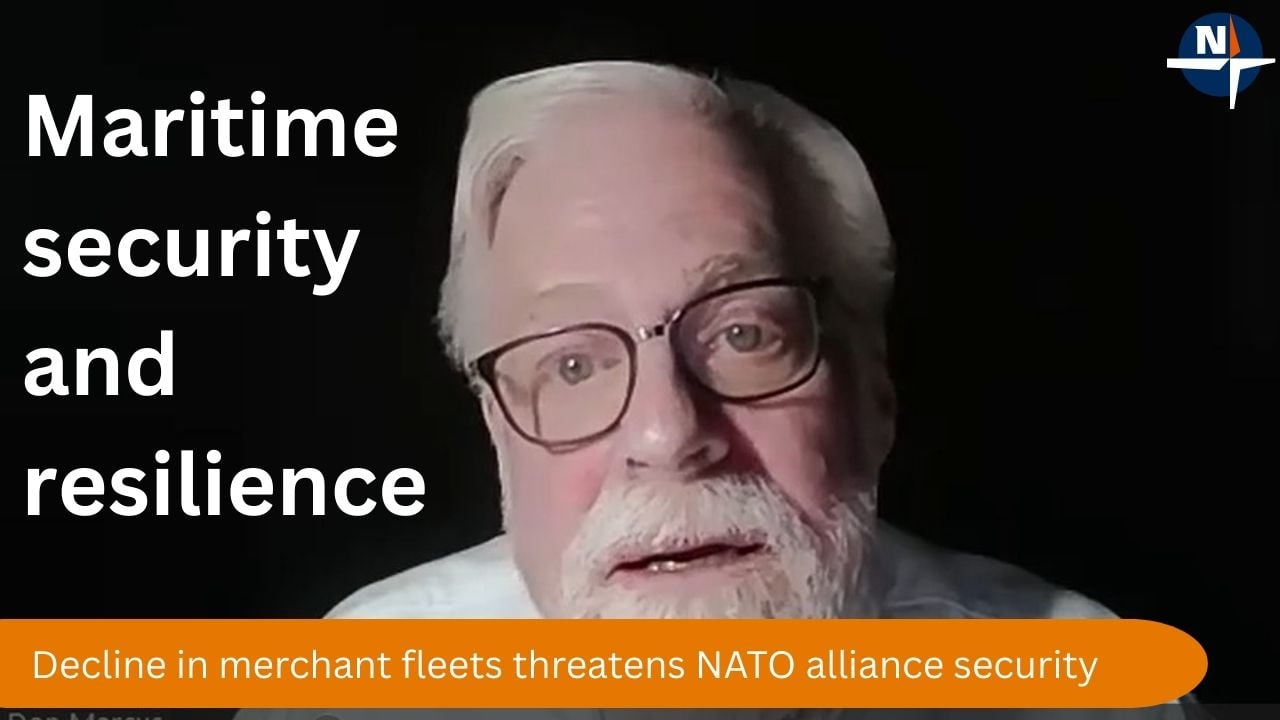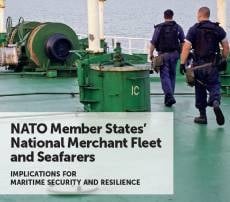Maritime unions call for urgent policy reforms as merchant fleets shrink across NATO nations
28 May 2025

A new report by Nautilus International and the International Organization of Masters, Mates & Pilots (MM&P) has revealed an alarming decline in merchant fleets and seafarer numbers across NATO member nations, potentially undermining the alliance's ability to respond to global conflicts and crises.
The report highlights how the shrinking maritime capabilities of NATO countries could seriously compromise their Article Five commitments – the cornerstone principle that an attack on one ally is an attack on all.
'Unless NATO member states address the basic conclusions that we've drawn and the policy recommendations that we're making in this report, it's all going to be wasted because they won't be able to deploy the forces and assets to where they're needed without our people and our ships,' warned Nautilus International general secretary Mark Dickinson.
The study was commissioned following a presentation to NATO's transport committee in Brussels last November, where Mr Dickinson and MM&P president emeritus Don Marcus pledged to provide detailed evidence of the decline in merchant shipping capabilities across the alliance.
UK and US maritime decline
The UK has experienced a sharp decline in its flag vessels, alongside a significant reduction in British seafarers. Despite policy measures introduced in 2000 to support flag growth and skills development, these initiatives have merely stabilised rather than reversed the decline.
'The tonnage tax policy has not been effective in achieving its goals of growing the UK flag and UK seafarers,' Mr Dickinson said. 'Many vessels on the UK tonnage tax are foreign-flagged, and the majority of officers and ratings are foreign. Currently, only 500 cadets are being trained annually in the UK, far short of the 2,000 needed to maintain the fleet.'
Mr Marcus said: 'Similarly, the US Merchant Marine has faced a gradual decline since the 1950s and 1960s, largely due to competitiveness issues and the lack of a coherent national policy. While the Jones Act has protected domestic shipping, the international fleet has diminished considerably.'
Flags of Convenience undermining security
A key issue identified in the report is the dominance of flags of convenience (FOCs), with Panama, Liberia, and the Marshall Islands now the top three maritime registries globally. These FOCs offer lower taxes and reduced regulatory enforcement, making it difficult for traditional maritime nations to compete effectively.
'The flags of convenience are now the dominant force in world shipping,' Mr Dickinson said. 'They undermine international law and governance, making it challenging for bona fide flag states to regulate effectively.'
Policy recommendations
The report calls for a complete reset of maritime policies to address these challenges. For the UK, recommendations include implementing a comprehensive cabotage policy, removing category one status for the Red Ensign Group of ship registers, and developing a clear strategy to grow the UK flag.
For the US, the report suggests maintaining and strengthening the Jones Act while developing a comprehensive national maritime policy that includes growing the US flag, enhancing training and recruitment, and supporting the industry.
Both union leaders emphasised the need for long-term policy commitments and international cooperation to address the decline in maritime capabilities, particularly in light of rising global tensions and the emergence of China as a maritime power.
'This is getting rather urgent now,' Mr Dickinson stressed. 'With US president Trump pointing out problems with NATO members' defence spending, addressing maritime capabilities has never been more timely.'
Take action now
The full report on NATO merchant fleets and maritime capabilities is available for download on the Nautilus International website under Resources.
Maritime professionals, industry stakeholders and policymakers are urged to read this crucial document and support calls for urgent policy reforms to strengthen NATO's maritime security and resilience.

Securing NATO's maritime backbone
Explore a vital new report, NATO Member States' National Merchant Fleet and Seafarers. A collaboration with Nautilus International and the International Organization of Masters, Mates & Pilots developed by developed by Estelle Arnette who has decades of experience with the International Transport Workers' Federation and the European Transport Workers' Federation.
The report examines the alarming decline in NATO-owned merchant fleets and seafarers. It highlights the serious implications for maritime security resilience and offers actionable recommendations for NATO members.
Download now to understand the risks – and how to secure the future of NATO’s maritime strength.
Tags
More articles
To continue its mission, NATO must reverse the decline in its merchant fleet
Nautilus Federation unions endorse US transportation secretary nominee over support for cabotage
The American Maritime Partnership (AMP), the largest maritime industry legislative coalition in the United States, has announced that it supports the nomination of former congressman Sean Duffy to lead the US Department of Transportation.
